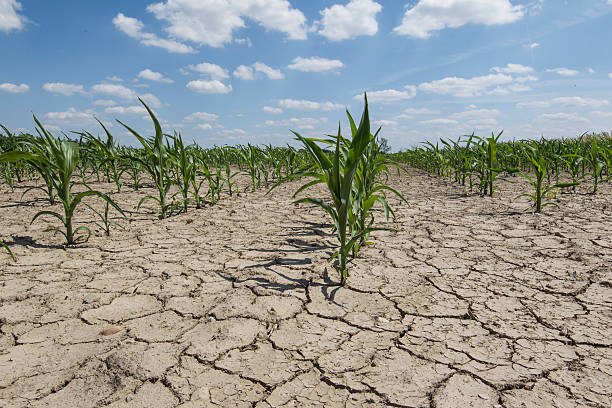
According to the UK Met Office, future summers could last longer with an increased risk of drought. Research by the world’s leading weather service found that summer-like weather patterns will also lead to warmer and drier autumns from the mid-2020s.
Following some of the driest conditions in nearly 90 years, 11 of the 14 UK Environment Agency areas are now in drought, as we endured 5 consecutive months of below-average rainfall across all geographic regions in England and above-average temperatures.
The impact of drought conditions exacerbated by heat waves was felt across the whole of Europe, with a senior European Commission researcher reporting it to be Europe’s worst year in 500 years. The heat and water stresses have had a severe impact on summer crop yields with the most heavily affected being grain maize, soybeans, and sunflowers.
The Environment Agency’s water situation national report for July provides a clear picture of the soil moisture deficit in the UK over the month, highlighting that it was the driest July across England since 1935.
Despite recent heavy rains across the country, areas of England are still in drought, sparking fears of food shortages during the winter months. With reports of farmers running out of water to irrigate crops and continued rises in fertiliser and fuel costs, food produce could continue going up in price. Given we are in the midst of a cost-of-living crisis, this could further increase pressure on families already struggling to put food on the table.
The solution
Fungi is an overlooked kingdom of life that has shaped our planet and our society but it’s potential remains misunderstood and undervalued. Fungi has demonstrated being far smarter than humans at solving logistic problems, forming complex communication networks like our own neural networks. They can respond to stimuli and transfer information over thousands of meters. Fungi form intricate relationships with other organisms to survive in extreme conditions making microbes far smarter than humans at responding and adapting to changing environments.
Microbes support plant health by increasing the availability of nutrients, enhancing plant root growth, and making plants more resistant to heat, flooding, and drought. Many plants in extreme environments only survive because they have formed partnerships with fungi that provide essential tools to endure heat, drought, and other stresses.
Plants need water to maintain their cell structure and drive biochemical reactions like photosynthesis. Under drought conditions, plants limit water losses by closing the openings on the undersides of their leaves, but this prevents proper temperature regulation and capture of CO2. Fungi can help to relieve this stress by stimulating plant root growth and increasing the efficiency of water uptake from the soil.
Our goal
FA Bio’s goal is to discover robust microbial bioproducts within the next two years, marking the next step in the evolution of sustainable agriculture. Its unique SporSenZ tool effectively samples microbes from the soils of different crops and environments to study which fungal species are key for maximising the nutrient uptake by the plants. Understanding the relationships between fungi and plants is fundamental for the discovery and development of effective microbial biofertilisers that perform optimally when applied in fields, improving plant architecture, and promoting root growth.
With a vision to protect the natural ecosystems that we need to sustain life, FA Bio is helping growers overcome the huge challenge that climate change is imposing on their crops.


